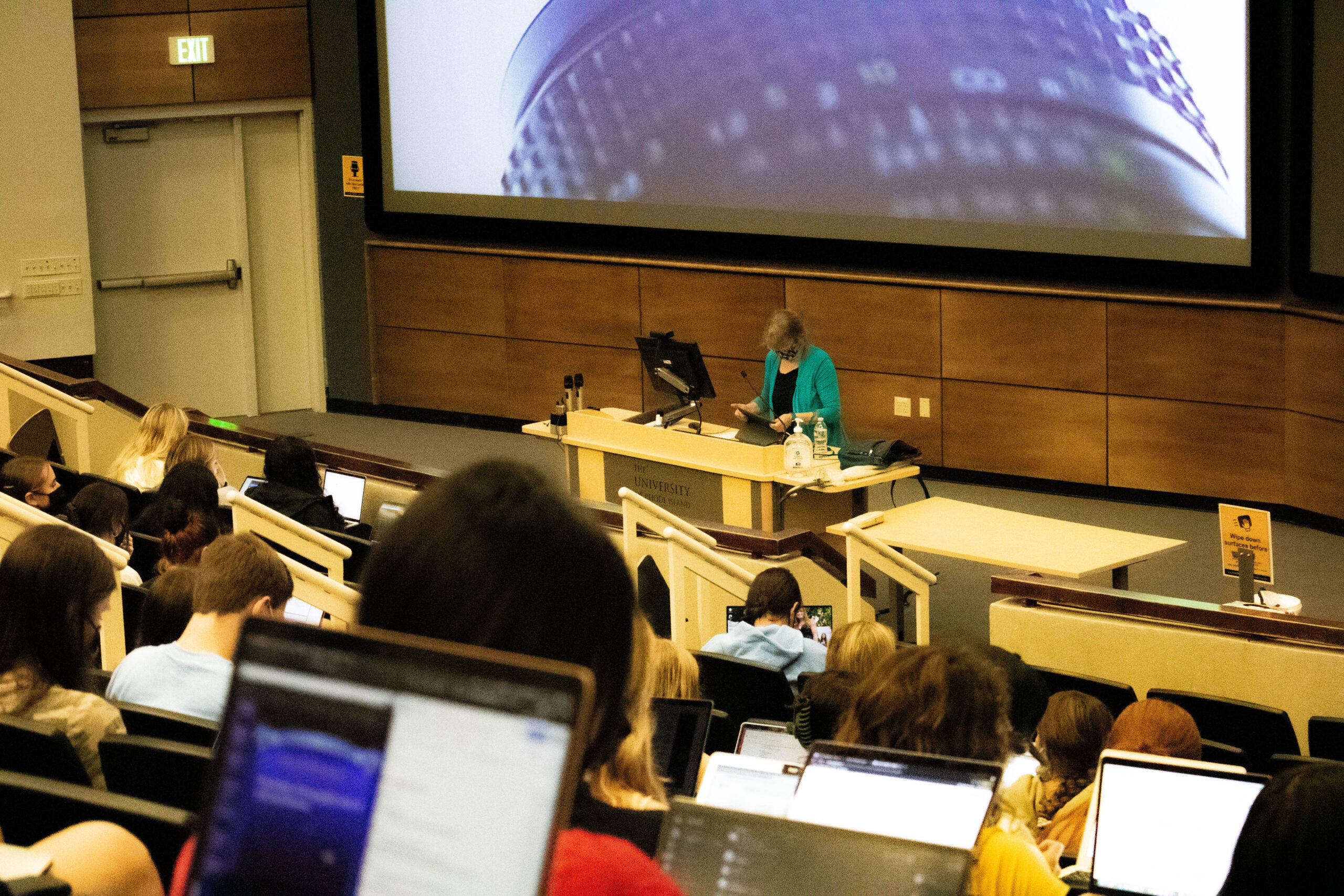As classes and events return to in-person formats at the University of Rhode Island, some students and professors have continued taking online classes and it doesn’t seem like online classes will go away any time soon.
James Ferry, a graduate teaching assistant at the University, said that there are many benefits and drawbacks to both in-person and online classes. Students come from various situations and backgrounds that affect how they learn, Ferry said. This may include being a parent, being a caretaker for their parents and having additional jobs. Because of this, he believes that online classes can be more accessible to a wider range of circumstances.
He said that asynchronous classes are ideal for students who have a lot on their plate since professors can just upload recorded lectures and have students listen on their own time. There’s less pressure online because you can watch a lecture at noon, 3 a.m. or any time without having to worry about appearances, according to Ferry. He also said, “the advantage is I can do it in my pajama bottoms at home.”
On the other hand, in-person classes can be more hands-on and engaging. However, Ferry said that the commute and anxiety of teaching in front of groups of students again for the first time can be nerve-wracking for many students.
Professor Daniel Carrigg said that he prefers in-person classes because he believes that learning retention is much harder online, as nearly twice as many students failed his classes when they were moved online.
“I know it’s just because people checked out,” Carrigg said. “It’s less personal online so students are less invested in their schoolwork; they can easily turn their computer off and leave.”
He is prepared to make the switch back to online if necessary, though, citing his concern about the Delta variant and the possibility of more restrictions.
“The thought is in the back of my mind,” Carrigg said, “‘if too many cases break out on campus, then what happens?’ I’m just trying to be prepared.”
In-person classes have come with a few restrictions, such as mandatory vaccinations and indoor mask policies. Both professors noted that so far they have not had any significant issues with students refusing to comply with mask restrictions, other than masks being worn under the nose or students complaining while begrudgingly wearing them.
Carrigg said that the closest thing to a conflict was on the first day of classes when a student asked him to take his mask off to hear him better. Carrigg asked the class if anyone else was having trouble hearing him and received a unanimous “no.” He declined the student’s request, saying that he didn’t want to break the rules, and hasn’t been asked again since.
“I’ve had some [students] tell me they think it’s stupid,” Carrigg said, “I’ve had them argue with me about it, but I’ve never had them disobey me.”
He cautioned everyone to wear a mask and be safer than they think they have to be, saying that while it’s annoying at times, it’s better than the alternative of another wave of COVID-19 cases.
Ferry encourages students to engage in class. He said that it’s easy for students to hide behind masks in class and to leave professors hanging, but contributing, participating and discussing is beneficial to both professors and students.





